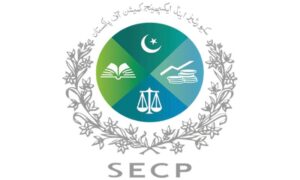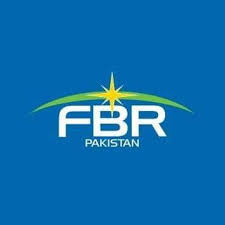Tax Deductions and Credits Available to Pakistani Businesses
Introduction:
Effective tax planning is a vital component of financial management for businesses in Pakistan. By leveraging available tax deductions and credits, businesses can optimize their tax liabilities and free up capital for investment, growth, and innovation. In this blog post, we will explore some of the tax deductions and credits available to Pakistani businesses.
1. Business Expenses Deductions:
Pakistani businesses can deduct various ordinary and necessary expenses incurred in the course of conducting their operations. This includes expenses such as rent, utilities, salaries and wages, office supplies, travel, and advertising costs. Proper documentation is essential to support these deductions.
2. Depreciation Deduction:
Businesses can deduct the cost of acquiring and maintaining assets used in their operations over time through depreciation. The depreciation deduction allows businesses to spread the cost of assets, such as machinery or vehicles, over their useful life.
3. Investment Tax Credit (ITC):
The Investment Tax Credit is available to businesses investing in specified industries, such as manufacturing and export-oriented sectors. It provides a credit against tax liabilities for a percentage of the cost of acquiring and installing eligible machinery and equipment.
4. Export Promotion and Research and Development (R&D) Incentives:
Pakistani businesses engaged in export-oriented activities or research and development may be eligible for tax incentives. These incentives can include reduced tax rates, exemptions, or deductions related to export earnings and R&D expenses.
5. Tax Credits for Investment in Balochistan and Khyber Pakhtunkhwa:
To encourage investment in less developed regions, tax credits are available to businesses making investments in Balochistan and Khyber Pakhtunkhwa provinces. These credits provide relief against tax liabilities for a specified period.
6. Agricultural Income Tax Exemption:
Agricultural income derived from agricultural land in Pakistan is generally exempt from income tax. However, income from non-agricultural sources, such as rent and capital gains, may still be subject to tax.
7. Donations to Approved Charitable Organizations:
Businesses can claim tax deductions for donations made to approved charitable organizations in Pakistan. These deductions encourage corporate social responsibility and support charitable causes.
8. Tax Exemptions for Startups:
The government of Pakistan has introduced tax exemptions and incentives for startups. Qualifying startups can benefit from reduced tax rates and exemptions on certain income types.
9. Tax Relief for Special Economic Zones (SEZs):
Businesses operating within SEZs can enjoy various tax incentives, including income tax exemptions, reduced customs duties, and sales tax exemptions on specified goods and services.
10. Tax Credits for Solar Energy and Renewable Energy Projects:
Companies investing in solar energy and renewable energy projects may be eligible for tax credits. These credits aim to promote clean energy initiatives and reduce carbon emissions.
11. Zakat Deduction:
Businesses are required to deduct and deposit Zakat from their annual Zakatable income and assets. This is an important religious obligation for Muslim businesses, and it may be deductible from taxable income.
12. Employee Provident Fund Deductions:
Employers can claim deductions for contributions made to employee provident funds. These contributions are designed to provide retirement benefits to employees.
13. Tax Credits for Education and Training:
Businesses that invest in the education and training of their employees can benefit from tax credits. These credits encourage skill development and lifelong learning among the workforce.
14. Tax Incentives for Technology and IT Sector:
As Pakistan aims to promote its technology and IT sector, businesses engaged in software development, IT services, and related activities can access tax incentives, including reduced tax rates and exemptions.
15. Sales Tax Refund for Exporters:
Export-oriented businesses can claim a refund of the sales tax paid on inputs and supplies used in the production of goods for export. This helps reduce the cost of production for exporters.
16. Tax Credits for Energy-Efficient Equipment:
Investments in energy-efficient equipment and technologies can qualify for tax credits. These credits promote sustainability and energy conservation in business operations.
17. Tax Deductions for Charitable Contributions:
Businesses that make donations to charitable organizations can claim deductions for these contributions. This not only benefits the community but also reduces the taxable income of the business.
18. Tax Relief for Small and Medium-sized Enterprises (SMEs):
The government of Pakistan has introduced various tax relief measures for SMEs, including reduced tax rates and simplified tax procedures. These incentives aim to support the growth and development of small and medium-sized businesses.
19. Tax Credits for Women Workforce:
To promote gender diversity and women’s participation in the workforce, businesses employing women workers may be eligible for tax credits or incentives.
20. Research and Development Tax Credits:
Companies that invest in research and development activities can benefit from tax credits aimed at stimulating innovation and technological advancement.
21. Tax Deductions for Business Losses:
Businesses that incur losses in a tax year can carry forward these losses and offset them against future profits, reducing tax liabilities in subsequent years.
22. Tax Exemptions for Certain Industries:
Specific industries, such as information technology and export-oriented businesses, may enjoy tax exemptions or reduced tax rates as part of government policies to encourage growth in these sectors.
23. Tax Credits for Green Building Initiatives:
Businesses engaged in green building and sustainable construction projects can access tax credits for promoting eco-friendly and energy-efficient building practices.
Conclusion:
Leveraging tax deductions and credits is a strategic approach for Pakistani businesses to minimize tax liabilities, encourage specific economic activities, and invest in growth and innovation. However, it’s important to navigate the tax landscape carefully, keep accurate records, and stay informed about changes in tax laws and regulations. Collaborating with tax professionals can help businesses make informed decisions and maximize the benefits of available tax incentives, ultimately contributing to their financial success and the overall economic development of Pakistan.




